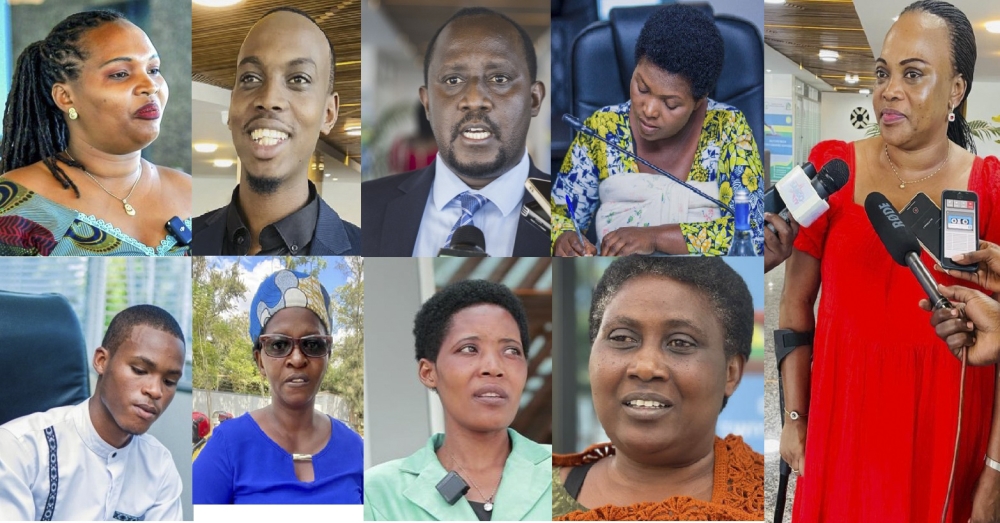

As preparations for the 2024 elections slated for July are underway, 675 aspirants have filed their candidatures for parliamentary seats in the Lower House.
These include 400 candidates proposed by political parties and 275 aspirants from special interest groups such as women, youth, and people with disabilities, along with independent hopefuls.
This large number reflects a growing public interest in becoming a lawmaker, considering Rwanda’s Lower House – the Chamber of Deputies – comprises 80 members.
A Presidential Order of December 11, 2023, sets the polling date for the President of the Republic and 53 Deputies elected from candidates proposed by political organisations or independent candidates as July 15, 2024. Rwandan nationals voting from abroad will cast their votes on July 14.
ALSO READ: Elections: What happens before campaign period begins
On July 16, 24 female Deputies will be elected by specific electoral colleges based on national administrative entities, along with two Deputies elected by the National Youth Council and one Deputy elected by the National Council of Persons with Disabilities.
But what does it take to secure a parliamentary seat?
Eligibility Criteria for Deputies
According to the 2019 organic law governing elections, amended in 2023, a person eligible to be a member of the Chamber of Deputies must be a Rwandan citizen, at least 21 years old, of good integrity, and not subject to disenfranchisement as specified in Article 7 of the organic law.
Article 7 prohibits individuals from registering on the voters’ register if they have been deprived of their right to vote by competent courts and have not been rehabilitated or granted amnesty according to the law. This includes individuals convicted of manslaughter, murder, genocide, crimes against humanity, defilement, rape, prisoners, and refugees.
Submitting a Candidature
Aspiring MPs must submit their candidatures within the set timeframe to the National Electoral Commission (NEC). The submission must include full names as on their national ID, a CV detailing their profession, place and date of birth, place of residence, a birth certificate issued within the last three months, two passport-sized photographs, a copy of the national ID, and a copy of their criminal record issued within the last six months.
ALSO READ: RPF sweeps polls to retain House majority
Independent aspirants must also provide a list of at least 600 eligible voters supporting their candidacy, including at least 12 voters from each district, and a logo for the ballot paper.
The NEC screens all candidates before announcing the list of eligible candidates.
Requirements for Independent Candidates
For an independent candidate to be elected to the Chamber of Deputies, they must obtain at least 5% of the valid votes cast. With more than 9.5 million Rwandans expected to vote in the 2024 elections, an independent candidate would need approximately 475,000 votes to secure a seat, assuming the electorate remains constant.
Party list candidates
Seats for candidates from political organisations are allocated based on party performance. The number of seats is calculated by dividing the number of votes obtained by the party list by the electoral quotient. The quotient is determined by dividing the total number of votes from lists that received at least 5% of the valid votes cast by the number of remaining seats, excluding those of independent candidates. Remaining seats are distributed according to the highest surplus system.
MPs representing Special Interest Groups
For the 24 female Deputies, elections are conducted by specific organs in line with national administrative entities. The Northern Province will have four seats, the Southern, Eastern, and Western Provinces will each have six seats, and the City of Kigali will have two seats. The electoral college includes members of the Executive Committee of the National Women Council at various levels.
For youth representation, the two candidates with the most votes are elected. The electoral college consists of the Executive Committee of the National Youth Council at the district and national levels.
The Deputy representing people with disabilities is elected by members of the Executive Committee of the National Council of Persons with Disabilities (NCPD) at different levels, as well as the NCPD Coordinator at each sector level.
In cases of a tie, the law mandates a second and potentially a third round of voting.


